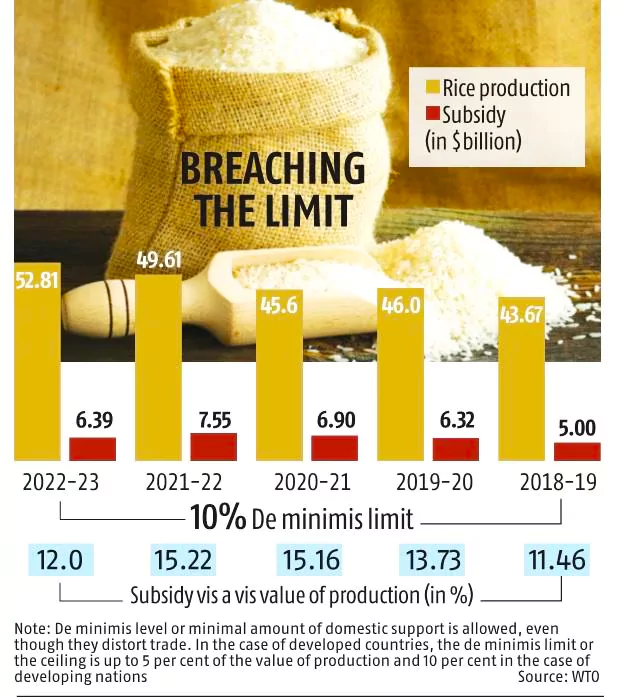![]() 9 Apr 2024
9 Apr 2024
India has invoked the peace clause at the World Trade Organization (WTO) for the fifth consecutive time for the marketing year 2022-23 due to breaching the prescribed subsidy limit for rice offered to its farmers.

| Must Read | |
| NCERT Notes For UPSC | UPSC Daily Current Affairs |
| UPSC Blogs | UPSC Daily Editorials |
| Daily Current Affairs Quiz | Daily Main Answer Writing |
| UPSC Mains Previous Year Papers | UPSC Test Series 2024 |
<div class="new-fform">
</div>